Hyundai Santa Fe vs Kia PV5 - Differences and prices compared
Compare performance (288 HP vs 163 HP), boot space and price (51200 £ vs 32800 £ ) at a glance. Find out which car is the better choice for you – Hyundai Santa Fe or Kia PV5?
Costs and Efficiency:
Price and efficiency are often the first things buyers look at. Here it becomes clear which model has the long-term edge – whether at the pump, the plug, or in purchase price.
Kia PV5 has a clearly advantage in terms of price – it starts at 32800 £ , while the Hyundai Santa Fe costs 51200 £ . That’s a price difference of around 18394 £.
As for electric range, the Kia PV5 performs decisively better – achieving up to 416 km, about 362 km more than the Hyundai Santa Fe.
Engine and Performance:
Power, torque and acceleration are the classic benchmarks for car enthusiasts – and here, some clear differences start to show.
When it comes to engine power, the Hyundai Santa Fe has a clearly edge – offering 288 HP compared to 163 HP. That’s roughly 125 HP more horsepower.
In acceleration from 0 to 100 km/h, the Hyundai Santa Fe is distinct quicker – completing the sprint in 8 s, while the Kia PV5 takes 10.60 s. That’s about 2.60 s faster.
There’s also a difference in torque: Hyundai Santa Fe pulls noticeable stronger with 380 Nm compared to 250 Nm. That’s about 130 Nm difference.
Space and Everyday Use:
Beyond pure performance, interior space and usability matter most in daily life. This is where you see which car is more practical and versatile.
Seats: Hyundai Santa Fe offers evident more seating capacity – 7 vs 5.
In curb weight, Kia PV5 is minimal lighter – 1860 kg compared to 1920 kg. The difference is around 60 kg.
In terms of boot space, the Kia PV5 offers decisively more room – 1330 L compared to 711 L. That’s a difference of about 619 L.
When it comes to payload, Kia PV5 slightly takes the win – 790 kg compared to 665 kg. That’s a difference of about 125 kg.
Who wins the race in the data check?
The Kia PV5 sits well ahead of its rival in the objective data comparison.
This result only shows which model scores more points on paper – not which of the two cars feels right for you.
Costs and Consumption
View detailed analysis
Engine and Performance
View detailed analysis
Dimensions and Body
View detailed analysis
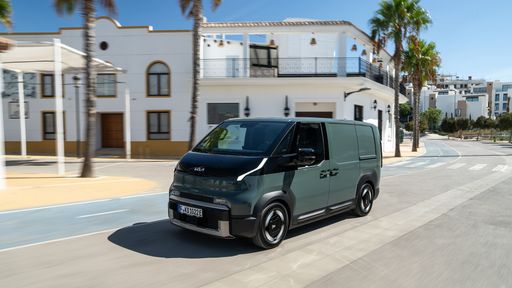
Kia PV5
Hyundai Santa Fe
The Hyundai Santa Fe blends practical family friendliness with a hint of premium style, offering roomy, sensible packaging wrapped in modern, confident design. Inside it serves up comfortable seats, straightforward tech and a calm, composed ride that makes daily drives feel a little more grown up — a solid all‑rounder that doesn’t try to be flashy.
details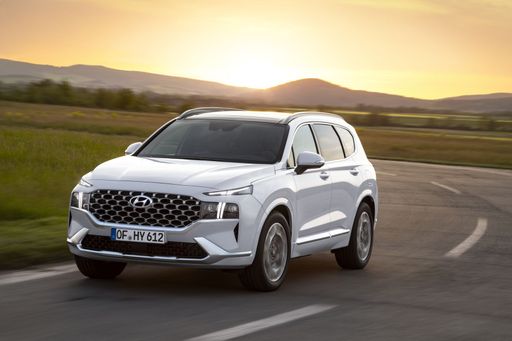
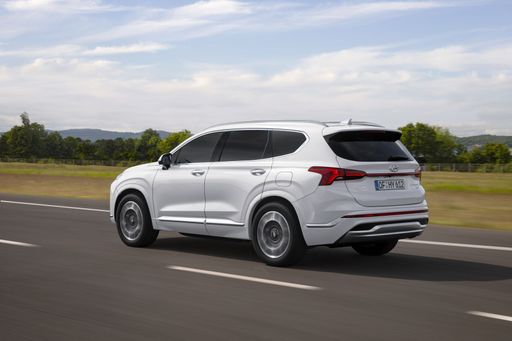

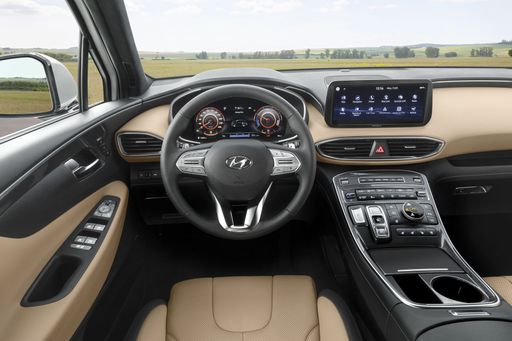
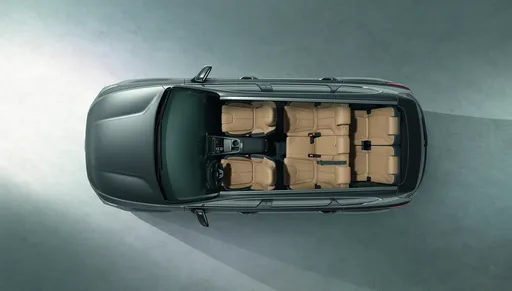
Kia PV5
The Kia EV5 is an exciting new entrant in the landscape of electric SUVs, promising a blend of style and innovation that captures attention. It boasts a sleek and modern design that aligns with Kia's evolving aesthetic identity, blending practicality with eye-catching details. With its foray into the electric vehicle segment, the EV5 is set to offer a highly competitive option for those looking to embrace sustainable mobility without compromising on comfort or tech features.
details



Costs and Consumption |
|
|---|---|
|
Price
51200 - 58600 £
|
Price
32800 - 38900 £
|
|
Consumption L/100km
3.8 - 7.1 L
|
Consumption L/100km
-
|
|
Consumption kWh/100km
-
|
Consumption kWh/100km
19 - 19.3 kWh
|
|
Electric Range
54 km
|
Electric Range
295 - 416 km
|
|
Battery Capacity
-
|
Battery Capacity
-
|
|
co2
90 - 160 g/km
|
co2
0 g/km
|
|
Fuel tank capacity
67 L
|
Fuel tank capacity
-
|
Dimensions and Body |
|
|---|---|
|
Body Type
SUV
|
Body Type
Cargo Van, Bus
|
|
Seats
5 - 7
|
Seats
2 - 5
|
|
Doors
5
|
Doors
-
|
|
Curb weight
1920 - 2165 kg
|
Curb weight
1860 - 2145 kg
|
|
Trunk capacity
621 - 711 L
|
Trunk capacity
1330 L
|
|
Length
4830 mm
|
Length
-
|
|
Width
1900 mm
|
Width
1895 mm
|
|
Height
1720 mm
|
Height
-
|
|
Max trunk capacity
1949 - 2032 L
|
Max trunk capacity
-
|
|
Payload
560 - 665 kg
|
Payload
455 - 790 kg
|
Engine and Performance |
|
|---|---|
|
Engine Type
Full Hybrid, Plugin Hybrid
|
Engine Type
Electric
|
|
Transmission
Automatic
|
Transmission
Automatic
|
|
Transmission Detail
Automatic Gearbox
|
Transmission Detail
Reduction Gearbox
|
|
Drive Type
Front-Wheel Drive, All-Wheel Drive
|
Drive Type
Front-Wheel Drive
|
|
Power HP
239 - 288 HP
|
Power HP
121 - 163 HP
|
|
Acceleration 0-100km/h
8 - 9.2 s
|
Acceleration 0-100km/h
10.6 - 16.2 s
|
|
Max Speed
196 km/h
|
Max Speed
-
|
|
Torque
380 Nm
|
Torque
250 Nm
|
|
Number of Cylinders
4
|
Number of Cylinders
-
|
|
Power kW
176 - 212 kW
|
Power kW
89 - 120 kW
|
|
Engine capacity
1598 cm3
|
Engine capacity
-
|
General |
|
|---|---|
|
Model Year
2025
|
Model Year
2025
|
|
CO2 Efficiency Class
E, F, B
|
CO2 Efficiency Class
A
|
|
Brand
Hyundai
|
Brand
Kia
|
What drivetrain options does the Hyundai Santa Fe have?
Available configurations include Front-Wheel Drive or All-Wheel Drive.
